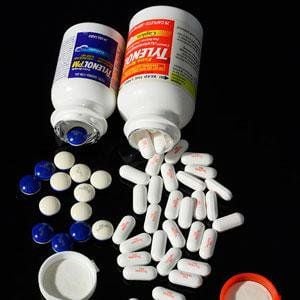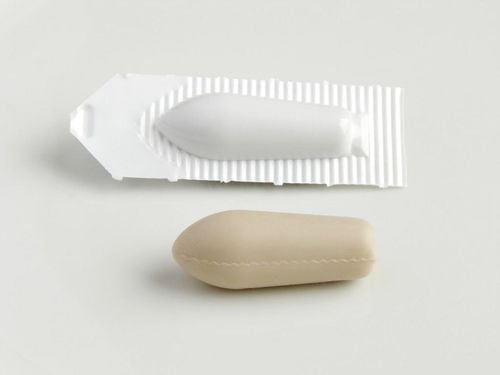Iron and folic acid are two main ingredients that help supplement, prevent anemia, and increase the need for blood production in many people. These ingredients are all found in Ferup. So what is Ferup? What are the uses of Ferup? Refer to the article below for more useful information about this medicine.
1. What is Ferup?
Ferup is an iron supplement to prevent iron deficiency anemia. Ingredients in Ferup include:
- Iron fumarate 152.0 mg
- Zinc sulfate 15.0 mg
- Vitamin B12 15.0 mg
- Folic acid 1.5 mg
In addition to the above ingredients, Ferup also contains many other excipients such as peppermint oil, Lecithin, Butylated hydroxyanisole, Butylated hydroxy, toluene, Methyl paraben, Propyl paraben, Gelatin, Sodium citrate, White beeswax, Colloidal silicon dioxide,...
2. What is the effect of Ferup?
Each ingredient in Ferup has its uses, when combined, it brings effective effects in supplementing iron, supporting red blood cell production, and participating in the hematopoiesis. Specifically:
- Iron fumarate participates in the structure and function of red blood cells and the respiratory enzyme cytochrome C. When there is iron deficiency, the body cannot synthesize hemoglobin, myoglobin... and this leads to dangerous anemia. Therefore, Ferup softules have the effect of supplementing iron for cases of patients with iron absorption disorders, and cases of anemia to stimulate the blood-forming process of the bone marrow.
- Zinc sulfate: has the effect of supplementing zinc in cases of zinc deficiency such as anorexia, diarrhea, vomiting, burns, dermatitis, children malnutrition, etc
- Vitamin B12 participates in folic acid metabolism and DNA synthesis, is necessary for red blood cell production and metabolism of Ketone substances, and is used in combination with other drugs in the treatment of anemia and neuritis...
- Folic acid helps the body produce and maintain the stability of new cells, prevents changes in the structure of DNA, prevents the formation of cancer cells, increases blood production, and prevents anemia.
Therefore, Ferup is prescribed in the following cases:
- Treatment and prevention of iron deficiency anemia
- Iron and folic acid supplementation for pregnant and breastfeeding women
- Prevention of neural tube defects in the fetus
On the other hand, Ferup is contraindicated in the following cases:
- Patients allergic to any ingredient of the drug
- Hemochromatosis
- Patients with hemolytic anemia or polycythemia
- Patients with iron excess
- Malignant tumors (due to vitamin B12 stimulating proliferation in cells and tissues)
3. Dosage and Usage of Ferup
Ferup is prepared in capsule form and is taken orally. The best time to take the medicine is after meals. The medicine dosage will be adjusted according to the purpose of treatment and the patient's health condition. Below is the recommended dosage of Ferup:
- Adults: take 1 tablet/time, 2 times/day
- Children: take 1 tablet/time/day
- Pregnant women: take 1 tablet/time/day.
Currently, there have been no recorded cases of overdose of Ferup. However, patients need to be careful to use the correct dosage of the drug to avoid overdose and increase side effects.
In case of forgetting a dose, patients should talk to their doctor to get the safest way to use the drug. Do not double the dose to make up for the missed dose.
4. Side effects of Ferup
Ferup can cause some unwanted side effects. However, most Ferup users do not experience any serious side effects. The most common condition is digestive disorders due to the iron-containing ingredient irritating the digestive system, leading to nausea, vomiting, diarrhea, unusual constipation, black stools, etc after using the drug. In addition, patients may experience some side effects such as acne, rash, hives, skin rash, etc The cause of this condition is the drug containing vitamin B12.
5. Ferup drug interactions
Drug interactions can reduce the effects of Ferup, or increase the impact of unwanted effects. Some of these drugs/drug groups include:
- Folic acid antagonists (Aminopterin, Methotrexate, Pyrimethamine, Sulfonamides...)
- Aminoside antibiotics, Chloramphenicol, anticonvulsants, antiepileptics...
- Drugs that induce enzymes (such as Phenobarbital, Phenylbutazone, Rifampicin...)
- Enzyme inhibitors (Cimetidine, Chloramphenicol, Isoniazid...)
6. Precautions when using
To use Ferup safely, patients need to keep in mind these following notes:
- Patients with normal blood iron levels should avoid prolonged use of the drug.
- Stop using the drug if you see any new unusual signs or if the condition does not improve after 7 days.
- Store Ferup at a temperature not exceeding 30°C, avoid light and humid places. Do not store Ferup in humid places or the freezer; keep away from heat and fire sources. Each medicine will have different storage methods, so read the Ferup storage instructions on the packaging carefully, or ask your pharmacist.
To arrange an appointment, please call HOTLINE or make your reservation directly HERE. You may also download the MyVinmec app to schedule appointments faster and manage your reservations more conveniently.













